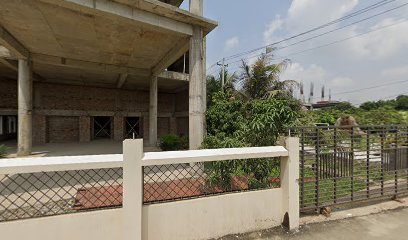
Sundarban National Forest: A Realm of Mangrove Majesty
Discover the enchanting Sundarban National Forest, a UNESCO World Heritage site and the world's largest mangrove ecosystem, teeming with Royal Bengal tigers and unique wildlife.
Venture into the heart of the Sundarban National Forest, a UNESCO World Heritage site and the world's largest mangrove ecosystem. Straddling India and Bangladesh, this unique biosphere teems with biodiversity, offering a sanctuary for the endangered Royal Bengal tiger, diverse bird species, saltwater crocodiles, and a plethora of other wildlife. Explore the intricate network of tidal waterways and mudflats, immersing yourself in the tranquil beauty of this natural wonder. Boat safaris provide the primary means of navigating this watery world, offering unparalleled opportunities for wildlife spotting and birdwatching. Witness the delicate balance of nature in this remarkable landscape, where the rhythm of the tides dictates life's ebb and flow. Sundarban is more than just a forest; it's an experience that will leave you in awe of nature's resilience and beauty.
A brief summary to Sundarban national forest
- 2GHQ+P45, BD
Local tips
- Visit during the winter months (October to March) for pleasant weather and optimal wildlife viewing opportunities.
- Book boat safaris and accommodations in advance, especially during peak season, to secure your spot.
- Respect the 'no plastic zone' policy and avoid bringing single-use plastics into the park.
- Carry insect repellent, sunscreen, and a hat to protect yourself from the elements.
- Pack light snacks and water, as options within the park are limited.
Getting There
-
Train & Ferry
From Kolkata, take a local train from Sealdah Railway Station to Canning (approx. 1.5-2 hours, ₹20-₹30). From Canning, hire a shared auto-rickshaw or private car to Godkhali Jetty (approx. 1 hour, ₹50-₹150 per person in shared auto, ₹800-₹1200 for a private car). At Godkhali, pre-booked boat safaris await. If you haven't booked, negotiate with boat operators for a tour (prices vary widely depending on duration and inclusions, starting from ₹2500-₹4000 per day for a basic boat). Factor in potential waiting times for ferries and transport connections.
-
Road & Ferry
Alternatively, drive from Kolkata to Godkhali (approx. 3-4 hours). Parking is available at Godkhali (₹100-₹200 per day). From Godkhali, take a pre-arranged boat safari or negotiate with local boat operators. Be mindful of traffic conditions, especially during peak season. Note: Roads beyond Canning can be rough. Consider hiring a car with a driver familiar with the area. Toll charges may apply on the way from Kolkata to Godkhali (approx. ₹100-₹200).
-
Permits & Entry Fees
Remember that entry permits are required to enter the Sundarban National Park. These can be obtained from the Forest Department offices at Canning, Sonakhali, or Sajnekhali. For foreign nationals, the entry fee is ₹1000 per day. Boat entry fees are approximately ₹1000, and guide fees are ₹2000 per day. It's advisable to arrange permits in advance through your tour operator to avoid delays. Carry your passport and visa for verification.
Discover more about Sundarban national forest
Iconic landmarks you can’t miss
Sundarban সুন্দরবন National Forest (Bangladesh)
15.9 km
Explore the Sundarbans: A biodiverse mangrove forest, home to the Royal Bengal Tiger and a UNESCO World Heritage Site.
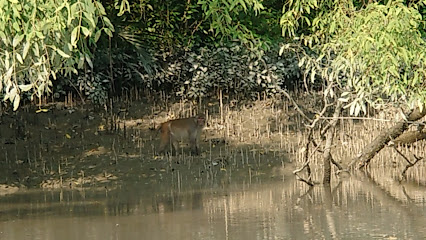
Dublar Char
28.6 km
Discover Dublar Char: A unique island in the Sundarbans, known for fishing, festivals, and natural beauty. Experience the heart of Bangladesh's coastal culture.
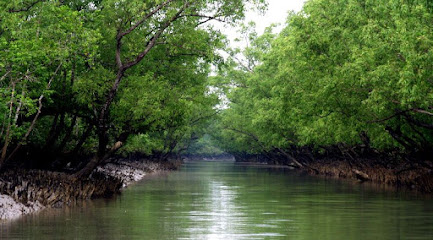
Sundarban
45.6 km
Explore Sundarban: A biodiverse mangrove forest, home to the Royal Bengal Tiger and a UNESCO World Heritage Site.
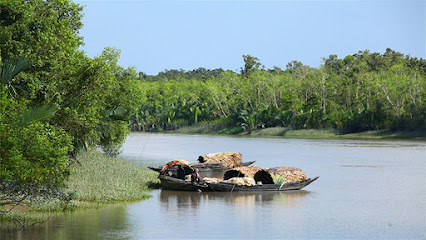
Gol Kanon Eco Resort
47.6 km
Discover the serene beauty of the Sundarbans at Gol Kanon Eco Resort: Experience authentic culture, sustainable tourism, and breathtaking natural landscapes in Bangladesh.
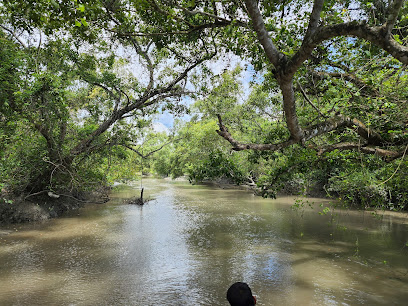
শুভ সন্ধ্যা সমুদ্র সৈকত
51.4 km
Discover Shuvo Sondha Sea Beach: Where rivers meet the sea, offering tranquil beauty and stunning sunsets in Barguna, Bangladesh.
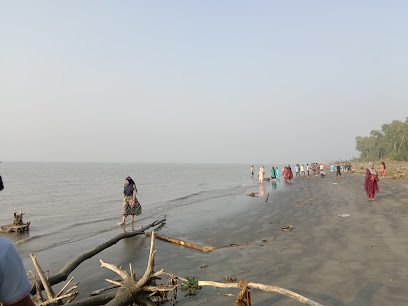
Burirdabri Forest Camp
52.7 km
Experience the tranquility of nature at Burirdabri Forest Camp, a haven for wildlife lovers in West Bengal's lush landscapes.
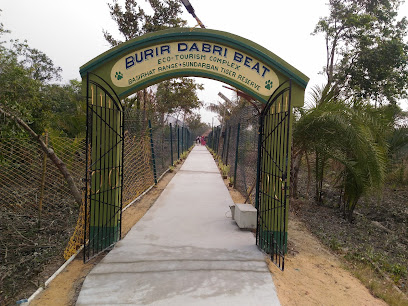
Jhinuk Beach
57.5 km
Discover the serene beauty and relaxing atmosphere of Jhinuk Beach, a hidden gem along Bangladesh's stunning coastline.

Sawpnorajjo Park and Resort, Kuakata
61.6 km
Experience the tranquility of Sawpnorajjo Park and Resort in Kuakata, where lush landscapes meet stunning coastal views for the ultimate getaway.
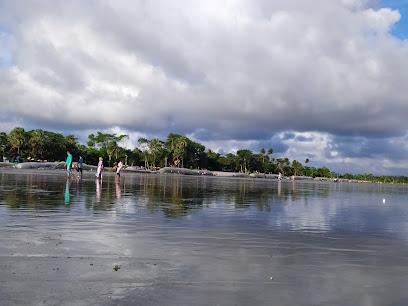
Sagor Konna Resort Ltd.
64.2 km
Experience Kuakata's beauty at Sagor Konna Resort: beachfront serenity, comfortable stays, and stunning Bay of Bengal views.
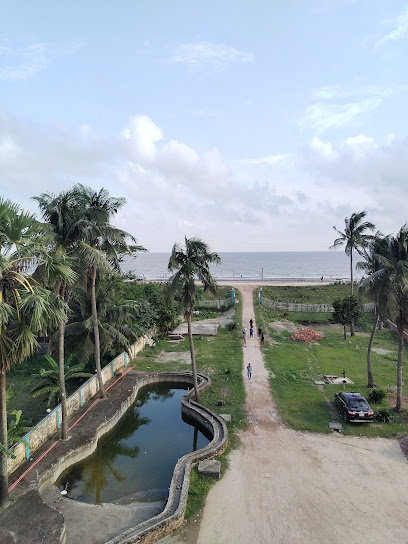
Hotel Khan Palace
64.4 km
Experience comfort and coastal beauty at Hotel Khan Palace in Kuakata, Bangladesh, offering easy access to stunning beaches, cultural sites, and breathtaking sunrise and sunset views.

Biswas Sea palace
64.5 km
Experience tranquility at Biswas Sea Palace in Kuakata, Bangladesh, offering stunning sea views, comfortable accommodations, and easy access to the beach and local attractions.
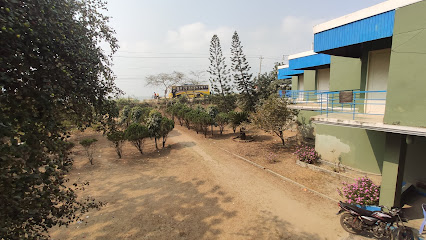
সীমা বৌদ্ধ মন্দির
64.5 km
Discover spiritual heritage at Kuakata's Seema Buddhist Temple, home to a revered অষ্টধাতু Buddha statue.
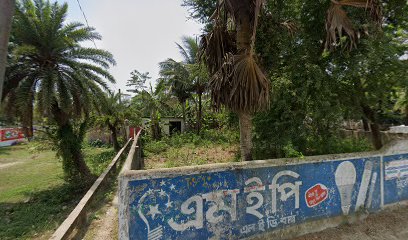
Parjatan Motel Kuakata, Patuakhali
64.7 km
Experience coastal beauty and cultural heritage at Parjatan Motel Kuakata, offering stunning sunrise/sunset views and access to local attractions.
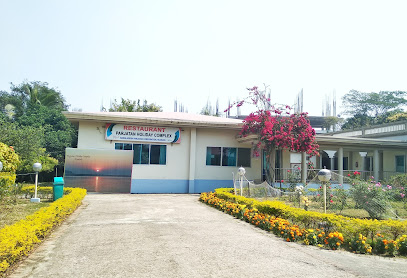
Shutki polli
64.8 km
Experience the authentic coastal culture of Bangladesh at Kuakata's Shutki Polli, a vibrant hub of traditional dried fish production.
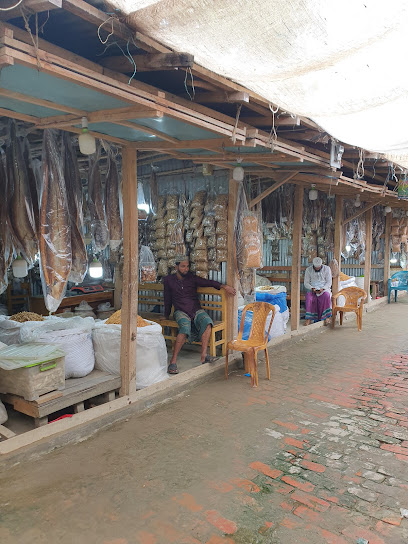
kuakata
64.8 km
Explore Kuakata, the captivating beach destination in Bangladesh known for its stunning sunrises, sunsets, and rich local culture.
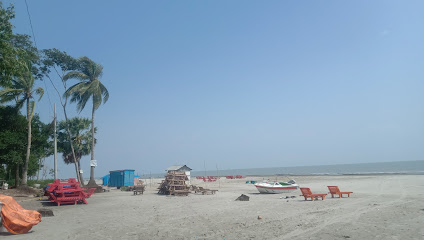
Unmissable attractions to see
Sundarban National Park, Bangladesh
8.5 km
Discover the enchanting Sundarban National Park: a UNESCO site, mangrove forest, and tiger reserve, offering unique boat safaris and wildlife encounters.

Sundarban Mangrove Forest - Bangladesh
11.8 km
Explore the Sundarbans, the world's largest mangrove forest and a UNESCO site, home to the Royal Bengal tiger and unique biodiversity.
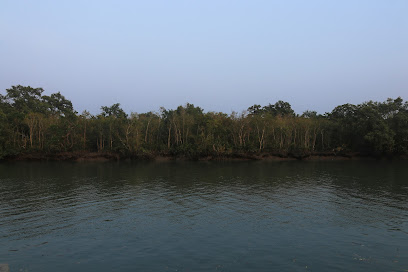
Sundarban Mangrove Forest
14.8 km
Explore the Sundarbans: World's largest mangrove forest, home to the Royal Bengal Tiger, and a UNESCO World Heritage Site. A unique blend of nature and adventure.
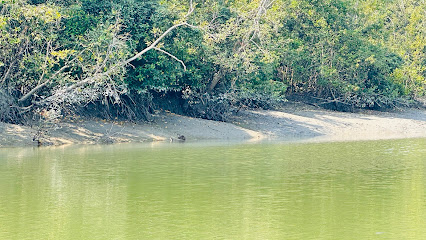
Hiron point trail. Khulna
24.3 km
Discover Hiron Point: A scenic and biodiverse haven in the Sundarbans, offering unparalleled wildlife viewing and natural beauty.
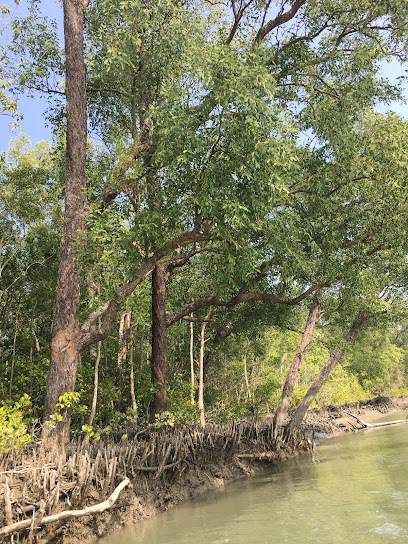
Hiron Point
24.9 km
Explore Hiron Point: A serene gateway to the Sundarbans, offering breathtaking views, rich wildlife, and unforgettable experiences in Bangladesh.
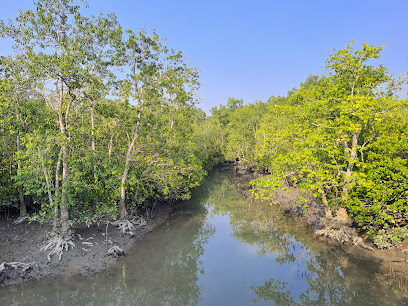
The Sundarbans (Bangladesh)
29.9 km
Explore the Sundarbans, a UNESCO World Heritage site in Bangladesh, home to the majestic Bengal tiger and stunning mangrove landscapes.
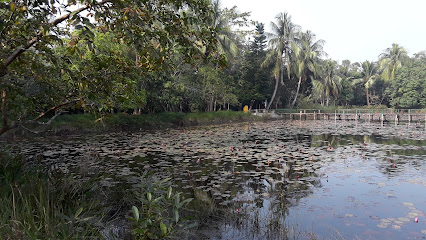
Harbaria Eco Tourism Center
31.0 km
Discover the serene beauty and diverse wildlife of the Sundarbans at the Harbaria Eco Tourism Center, a gateway to the world's largest mangrove forest.
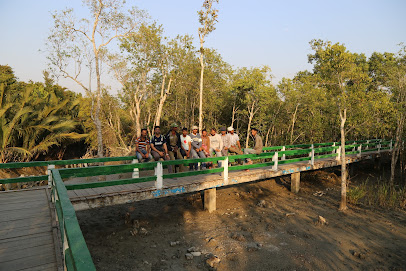
Jamtola Watch Tower
31.8 km
Explore the breathtaking Jamtola Watch Tower in the Sundarbans, a paradise for birdwatchers and nature lovers alike, offering stunning views and diverse wildlife.
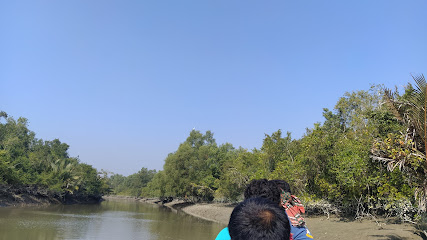
Dobeki Forest Camp
32.9 km
Escape to Dobeki Forest Camp for a tranquil Sundarbans experience, offering wildlife sightings and serene mangrove exploration.
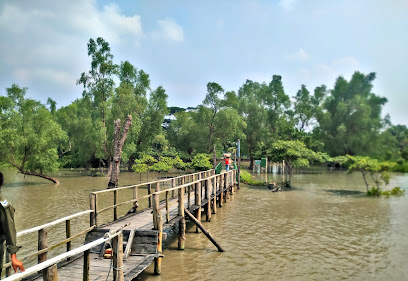
Jamtola Beach
33.6 km
Discover the untouched beauty of Jamtola Beach in Sundarbans: a serene escape where the mangrove forest meets the Bay of Bengal.
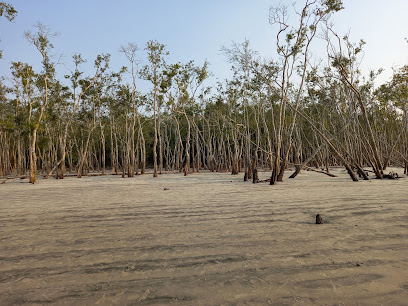
দৃষ্টি নন্দন
37.0 km
Discover the serene beauty of Drishti Nandan in Gabura Union, Bangladesh, showcasing rich culture and natural landscapes near the Sundarbans.
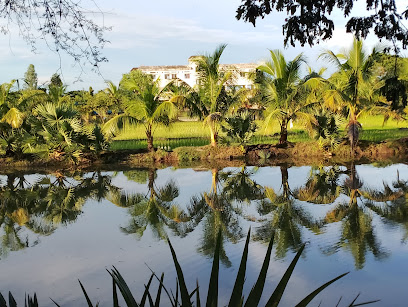
Kalagasia Watch Tower
37.3 km
Observe wildlife from above at the Kalagasia Watch Tower, offering panoramic views of the Sundarbans' unique mangrove ecosystem.
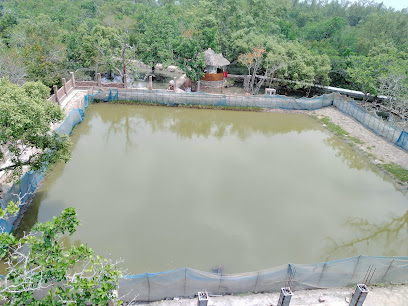
M.V The Crown
37.6 km
Experience the Sundarbans in style and comfort aboard the M.V. The Crown, a luxurious cruise through the world's largest mangrove forest.

Sundarbans
37.6 km
Explore the Sundarbans, the world's largest mangrove forest and home to the Royal Bengal Tiger, a UNESCO World Heritage Site.
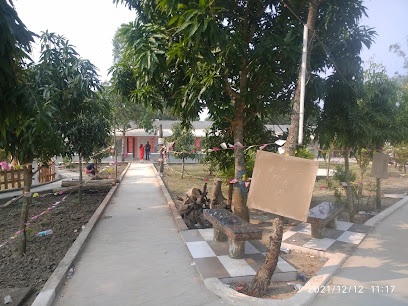
Sundarban/ সুন্দরবন National mangrove Park (Bangladesh)
37.6 km
Explore the Sundarban National Mangrove Park: A UNESCO site, home to the Royal Bengal tiger, and the world's largest mangrove forest.
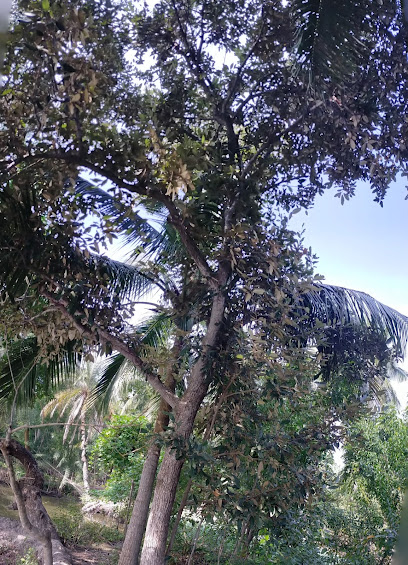
Essential places to dine
SuNdArBaN FoOdS
39.2 km
Discover SuNdArBaN FoOdS: A Crab Lover's Paradise Offering Authentic Seafood Delights in Nildumur.
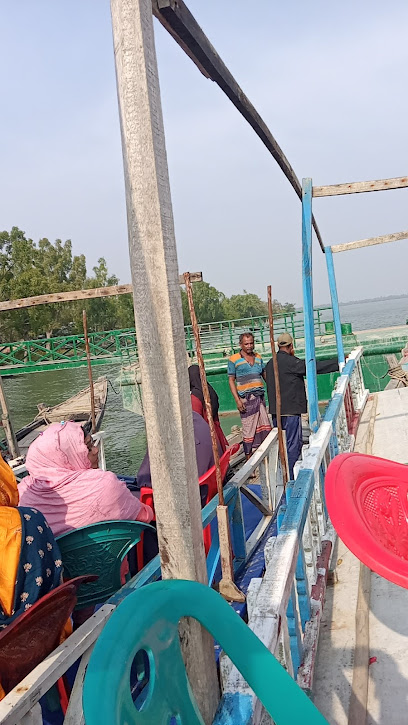
Bonobibi Forest Resort Sundarban
46.3 km
Experience tranquility at Bonobibi Forest Resort Sundarban - where nature meets comfort amidst breathtaking landscapes.
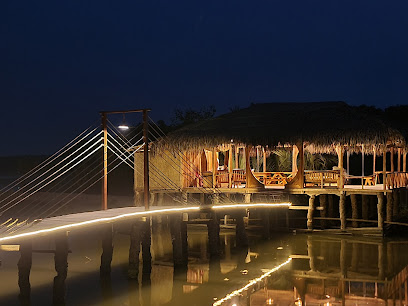
সুন্দরবন হোটেল এন্ড রেস্টুরেন্ট ট্যুরিস্ট স্পট
49.6 km
Experience family-friendly hospitality at Sundarbans Hotel and Restaurant while exploring the enchanting beauty of Bangladesh's Sundarbans.

Mangrove Haven Resort
50.7 km
Experience tranquility and adventure at Mangrove Haven Resort in Kailashganj, where luxury meets nature amidst stunning mangroves.
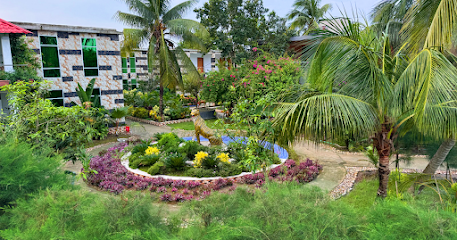
Muslim Hotel and mistanno vandar
63.6 km
Discover the rich flavors of Bangladesh at Muslim Hotel and Mistanno Vandar in Kuakata - where authentic cuisine meets warm hospitality.
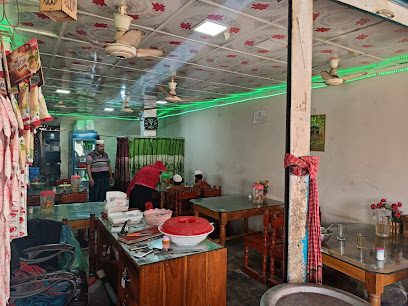
Banorupa Garden Restaurant
64.2 km
Discover Banorupa Garden Restaurant in Kuakata - A hidden gem serving authentic Asian cuisine in a serene garden setting.
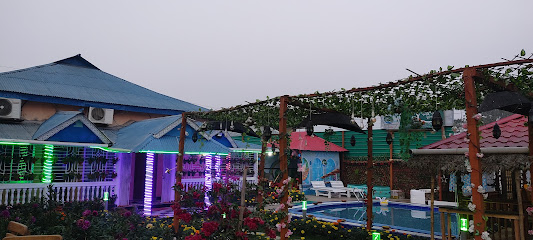
Kuakata Food Court
64.2 km
Discover delicious barbecue delights at Kuakata Food Court near stunning Kuakata Beach – a perfect blend of flavor and scenic beauty.
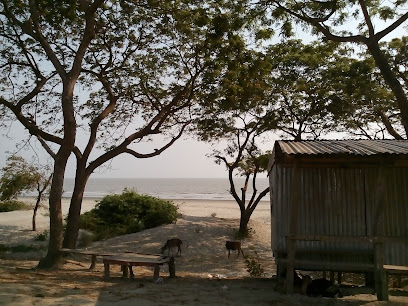
Marine Restaurant And Kabab
64.4 km
Discover exquisite seafood delights at Marine Restaurant and Kabab in Kuakata - where taste meets tradition by the sea.
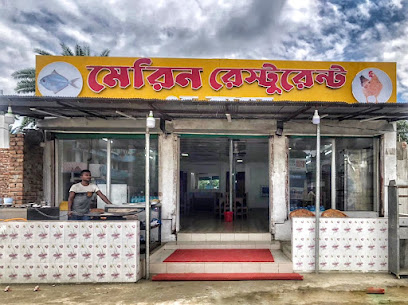
খাবারের হোটেল
64.5 km
Discover authentic Bangladeshi cuisine at খাবারের হোটেল in Kuakata – where every meal tells a story.

খবর কুয়াকাটা
64.5 km
Experience stunning sunrises and sunsets at Kuakata's pristine beaches while immersing yourself in vibrant Bangladeshi culture.
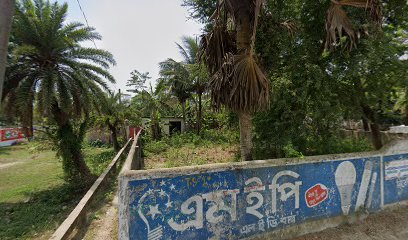
তরী (TORI KUAKATA)
64.5 km
Discover Tori Kuakata - where fresh seafood meets breathtaking ocean views in a vibrant dining atmosphere.

Rajdhani Hotel & Restaurant
64.5 km
Experience the rich flavors of Bangladesh at Rajdhani Hotel & Restaurant in Kuakata - a must-visit for food lovers.
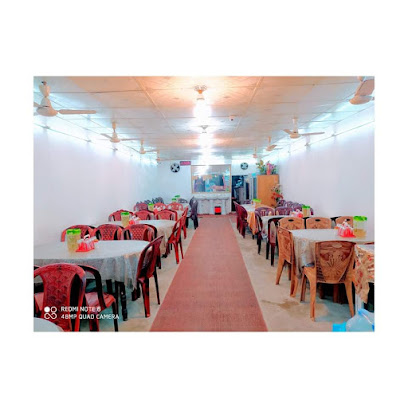
Ruposi Bangla Hotel & Restaurent
64.6 km
Experience authentic Bangladeshi cuisine with stunning beach views at Ruposi Bangla Hotel & Restaurant in Kuakata.
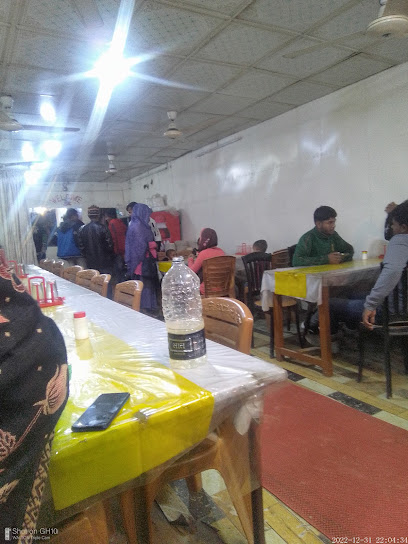
Hotel Kuakata Inn Int'l Ltd
64.6 km
Experience breathtaking views and exquisite dining at Hotel Kuakata Inn Int'l Ltd, your perfect retreat in scenic Kuakata.

Fish Fry Market
64.6 km
Savor fresh seafood delights at Fish Fry Market in Kuakata - a culinary paradise on Bangladesh's stunning coast.
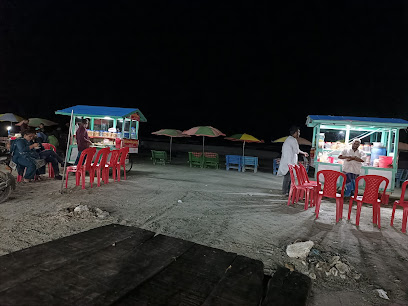
Markets, malls and hidden boutiques
Sundarban Medical Hal
37.6 km
Discover wellness and beauty at Sundarban Medical Hal, where health meets nature in an enchanting setting.

Sondorbon Shop
40.1 km
Explore Sondorbon Shop in Kobi Abadullah Sorok for unique Bangladeshi gifts and souvenirs that celebrate local craftsmanship and culture.
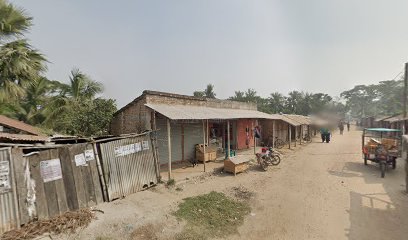
Purbo dur gabati
40.7 km
Explore Purbo Dur Gabati for unique gifts and handcrafted treasures that showcase the rich culture and artistry of Bangladesh.

Sotota mudi vaender
43.2 km
Explore the rich culture and craftsmanship at Sotota Mudi Vaender, a charming store in Bangladesh offering unique local goods.
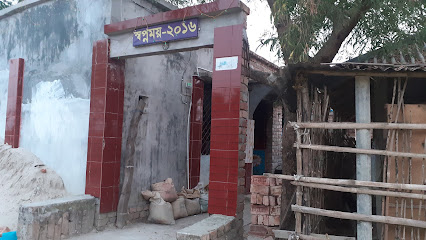
Shakib Varieties Store
43.8 km
Experience the vibrant local culture and flavors at Shakib Varieties Store in Kolbari, Bangladesh's charming grocery destination.
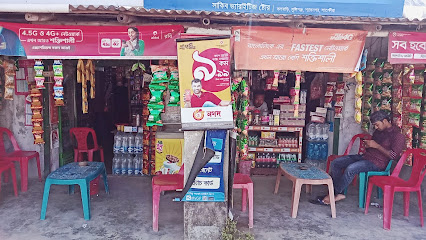
Organic Goods
44.2 km
Explore the finest organic grocery store in Bangladesh, where freshness meets sustainability and local flavors come alive.

Mahim store
45.1 km
Explore Mahim Store, a vibrant shopping destination in Bangladesh, showcasing local crafts and unique treasures that reflect the region's rich heritage.
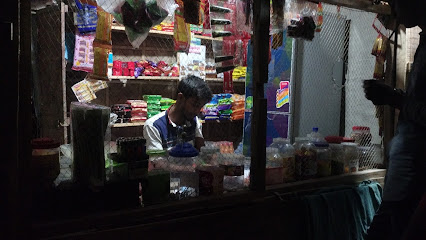
Iraboti Eco Resort & Research Center Limited
46.7 km
Experience nature's tranquility and learn about sustainable practices at Iraboti Eco Resort & Research Center in Dacope, Bangladesh.
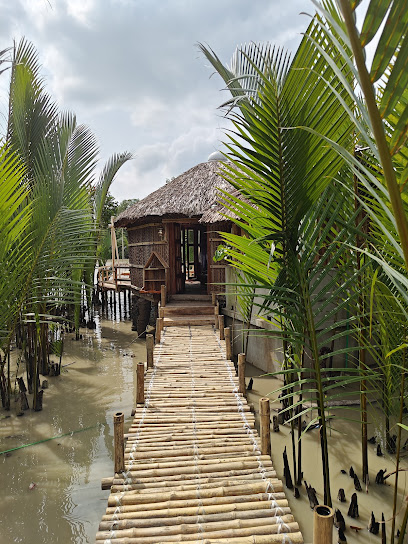
Mokka Storr
46.9 km
Explore Mokka Storr, Bangladesh's premier cosmetics store, offering a unique blend of international and local beauty products for all your needs.
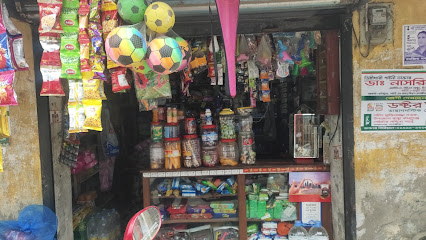
Salman Store
47.7 km
Explore the local flavors at Salman Store, your go-to grocery destination in Bangladesh for fresh produce and authentic snacks.
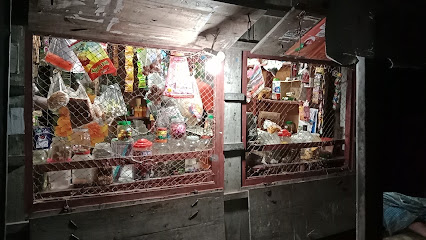
Mehedi Store
47.7 km
Explore Mehedi Store for an authentic taste of Bangladesh, featuring local crafts, snacks, and unique souvenirs.

Zubayer Grocery (মল্লু)
49.4 km
Discover the vibrant local culture and flavors at Zubayer Grocery, a must-visit grocery store in Ramjannagar for authentic Bangladeshi products.
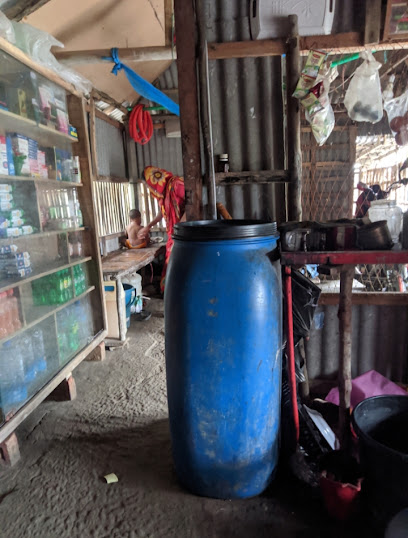
Dino Grocery
49.5 km
Explore the essence of Bangladeshi culture at Dino Grocery, where fresh local produce meets community spirit.
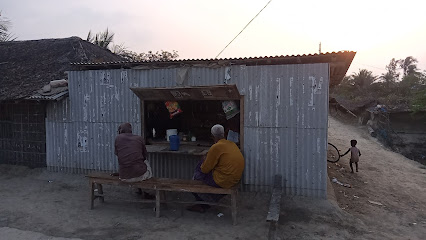
Matango sardar shop
50.2 km
Explore the unique offerings at Matango Sardar Shop, where local craftsmanship meets modern design in a delightful shopping experience.
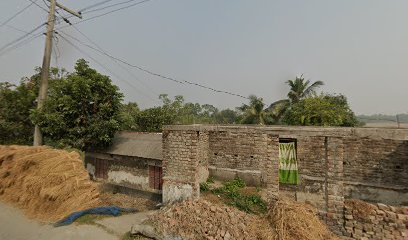
Jeher Ali Grocery
51.7 km
Explore the authentic tastes of Bangladesh at Jeher Ali Grocery, where local flavors and culinary traditions come to life.
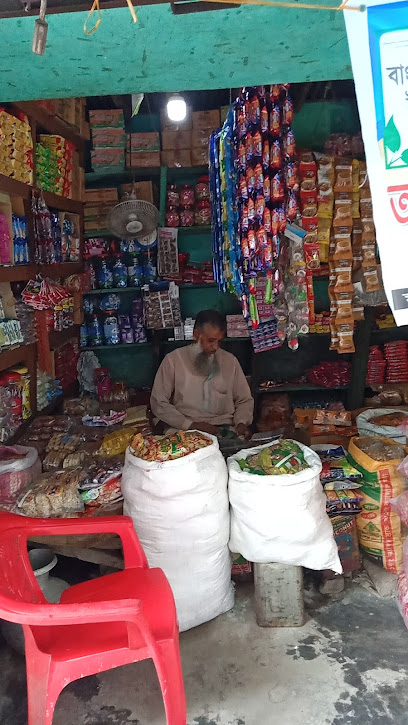
Essential bars & hidden hideouts
Jononi Digital Studio
43.7 km
Experience the vibrant culture of Koyra at Jononi Digital Studio, a lively bar offering a wide selection of drinks and a welcoming atmosphere.
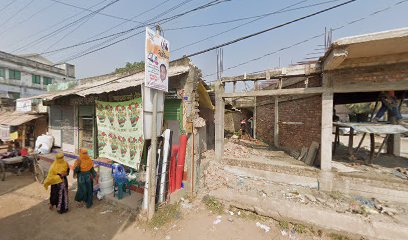
My Home
44.9 km
Experience the vibrant nightlife of Sharankhola at this charming bar, offering local flavors and a welcoming atmosphere perfect for tourists.

gabdu hoise
45.0 km
Discover the lively ambiance and local flavors at Gabdu Hoise, a vibrant bar in Bangladesh perfect for unwinding after exploration.

Md Razab Ali Moral
45.2 km
Discover the vibrant nightlife at Md Razab Ali Moral, a lively bar in Harinagar, offering local drinks and a welcoming ambiance for tourists.

Habibur
45.5 km
Experience the vibrant nightlife at Habibur, a popular bar in Moth Bari, where locals and tourists gather for great drinks and lively entertainment.

মিনি কুয়াকাটা
47.8 km
Discover the heart of Mongla’s nightlife at Mini Kuakata, a lively bar offering refreshing drinks and a vibrant atmosphere for tourists.

SABBIR Tower
53.3 km
Experience the vibrant atmosphere and diverse drink selection at SABBIR Tower, a must-visit bar in Bangladesh for every traveler.
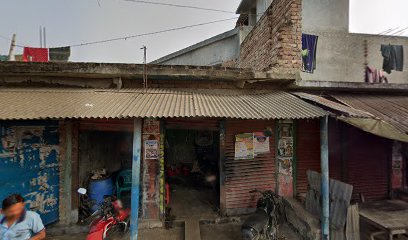
Valo bashi
55.9 km
Experience the vibrant nightlife of Shyamnagar at Valo Bashi, a lively bar offering a delightful mix of local and international drinks.

Mukesh Home
56.5 km
Discover the lively vibe and local flavors at Mukesh Home, a top bar destination in Nurpur Amirpur for tourists seeking a vibrant nightlife experience.

Vai Vai Mantion
61.5 km
Vai Vai Mantion: A luxurious bar in Barguna offering exquisite cocktails and an elegant atmosphere for a memorable night out.

Ayskurone Shop
62.5 km
Discover the vibrant ambiance and exquisite drinks at Ayskurone Shop, a must-visit bar in Bangladesh for travelers seeking local flavors.
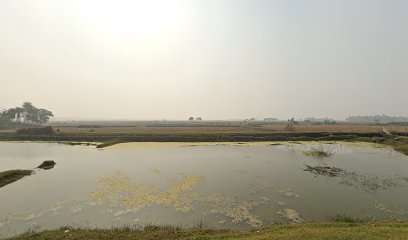
মেসার্স শফিক পান স্টোর
63.6 km
Experience local flavor at Messrs Shofiq Pan Store, a charming bar in Kuakata, serving traditional pan and snacks in a friendly atmosphere.

New Star Buffet Restaurant and Bar
64.2 km
Discover the vibrant New Star Buffet Restaurant and Bar in Kuakata for a delightful blend of local flavors and refreshing drinks, perfect for your travel experience.
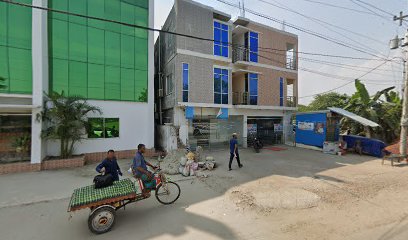
Raj Nayon
64.5 km
Discover the serene charm of Raj Nayon, a coastal pub in Kuakata offering stunning sea views and a perfect spot to unwind after a day of exploration.
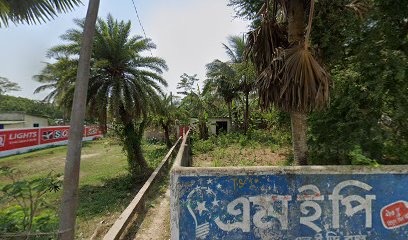
Kuakata BAR
64.9 km
Discover Kuakata BAR - A vibrant seaside bar offering refreshing drinks, stunning views, and a lively atmosphere in beautiful Kuakata.
